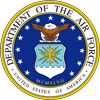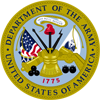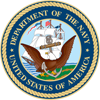 Prev - 63R Prev - 63R | Dental Corps Jobs | Next - 63N |
General Dentist - 63A

- Active/Reserve:Both
- Officer/Enlisted:Officer
- Restrictions:None
The cost of starting and maintaining a dental practice can be substantial. If you are a recent graduate with student loan obligations, this cost can be prohibitive. As a member of the U.S. Army Dental Corps, you can enter a stimulating existing practice with no start-up costs and begin treating patients without waiting to build a patient base.
Examine, diagnose and treat diseases, injuries, and defects of teeth, jaws, oral cavity and supporting structures to ensure that each Soldier is in optimal oral healthConduct and supervise direct patient care, and plan and execute disease prevention and health promotion programsExercise command of medical units as provided by law and regulation Perform special staff functions in health support for commanders at all levelsConduct medical research on diseases of military importance, and conduct, supervise and participate in graduate medical education and training of other medical personnel needed to sustain a robust and readily available medical systemUnique duty positions include: General Dental Officer; Unit Dental Surgeon; Clinic Chief
Active Duty
Doctorate from an American Dental Association—accredited dental school in the United States, District of Columbia, Puerto Rico or CanadaBetween 21 and 42 years of age (may request waiver, Locate A Recruiter for more information)License to practice dentistryMust be a U.S. citizenArmy ReserveIn addition to the above qualifications, permanent U.S. residency is required for Reserve duty officers.
In the Army Dental Corps, the case diversity dentists experience in caring for our service men and women far exceeds the medical care environment of the private sector. As an Army Dental Corps officer, you'll have access to the most sophisticated technology, the opportunity to consult with experts in both the military and private sector, plus exceptional professional growth opportunities, and may pay for continuing education, clinical specialization and residencies.Newly appointed Army Dental Corps officers who have not had postdoctoral residency training are designated General Dental officers. Upon completion of residency specialty training, the General Dental officer will acquire an advanced specialty designation.
Army Dental Corps officers must be leaders skilled in tactics, techniques and procedures in order to understand and support the Soldier; possess strong Army values, leader attributes and skills; and fully understand the key leadership actions that must be taken to ensure success.The Army Dental Corps offers a broad spectrum of opportunities. Every officer learns and trains to be a fully capable team member, gaining expertise and experience in diverse specialties and skills. Dentists gain this knowledge through continuing medical education and experience sustained by mentoring, additional institutional training, continuous selfdevelopment and progressive levels of assignments within their specialty.
The Armed Services Vocational Aptitude Battery (ASVAB) is an examination that is administered by the United States Military Entrance Processing Command. It is used to determine qualification and helps predict future academic and occupational success in the military.
No ASVAB
Active DutyIn addition to the many privileges that come with being an officer on the U.S. Army health care team, you'll be rewarded with:
A Health Professions BonusHealth Professions Loan Repayment (HPLR)Variable Specialty PayBoardCertified Pay ofDental Additional Special PayDental Officer Multiyear Retention Bonus, based on specialty and length of contract30 days of paid vacation earned annuallyNoncontributory retirement benefits with 20 years of qualifying serviceNocost or lowcost medical and dental care for you and your familyArmy Reserve
Special PayHealth Professionals Loan Repayment toward qualified dental school loansNoncontributory retirement benefits at age 60 with 20 years of qualifying serviceLowcost life and dental insuranceTravel opportunities, including humanitarian missionsBoth active and Reserve duty officers enjoy commissary and post exchange shopping privileges; a flexible, portable retirement savings and investment plan similar to a 401(k); may pay for continuing education; and specialized training to become a leader in their field.
See the whole list of Army Occupational Specialties here
To learn more about the Army's rank structure, see our complete list of Army ranks.
To see a list of military medals and decorations that can be earned by servicemembers in the Army and other branches of the military, see our list of military decorations and medals.








































































































































